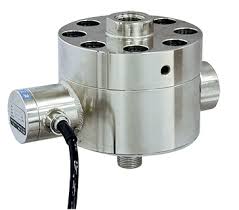Load Cells Equipment Calibration Services
In biopharmaceutical and medical related laboratories, load cells are an extremely important component to many manufacturing processes for weighing materials. Regularly load cell calibration will make sure of the accuracy and reliability of your testing procedures, which in turn will provide certification that the equipment is working as it should to help your organization meet regulatory requirements. At GL Technologies, we work with biopharmaceutical companies throughout California for their equipment calibration needs, including the load cell components. Our professional team has the expertise to help your laboratory out in all critical equipment calibration requirements.
To speak with the experts about your load cells calibration needs, please fill out our online form or give us a call!
What are Load Cells?
Load cells are transducers that convert force into an electrical signal used to easure the weight and force of an object. They come in many different shapes and sizes with common types of load cells including compression load cells, tension load cells, and shear beam load cells. They are widely used in the manufacturing testing of products in the biopharmaceutical and medical related research industries.

Why is Calibration Important?
For all biopharmaceutical equipment, calibration is the process of comparing the output of a measuring instrument with a known standards. Organizations rely on GL Technologies to calibrate their equipment regularly to make sure they're accurate and reliable. Without calibrations, load cells tend to drift over time, producing inaccurate readings. The GL Tec calibrations can also help identify any issues with your load cells, allowing them to be repaired or replaced as needed.
How GL Technologies Can Help
GL Technologies provides load cell calibration services for load cells ranging from 1 mg to 40 kg. Our experienced team of professionals uses modern equipment and follows strict procedures so your laboratory load cells are calibrated accurately and quickly.
The GL-Tec load cell calibration process includes the following steps:
Pre-calibration: We inspect your load cells for any physical damage or wear that could affect their performance.
Calibration: GL-Tec uses calibrated weights to apply a known load to your load cells, recording the output at each weight interval.
Post-calibration: Our team then provides you with a calibration certificate that documents the results of the calibration, including any adjustments made to the load cells.
To speak with the experts about your load cells calibration needs, please fill out our online form or give us a call!
Frequently Asked Questions About Load Cell Calibrations
Here are the FAQs we most commonly receive about load cell equipment calibrations for biopharmaceutical laboratories:
How Often Should load Cell Equipment be Calibrated?
The frequency of load cell calibrations is dependent on the type of equipment being used and how frequently it is being used. We recommend that load cell equipment be calibrated at least 1 time a year, but for critical applications where it is used frequently may need to be calibrated more often. An assessment of the use will determine the frequency.
What is Involved in Load Cell Calibration?
It involves testing the equipment at different weight levels using known weight limits or standards. The results will be compared to the expected values and any discrepancies will be corrected by adjusting the equipment or making repairs (if needed).
Who should perform load cell calibrations?
Load cell calibrations should be performed by qualified technicians or service providers such as GL Technologies who have the necessary training and expertise to perform the calibration accurately and safely.
What documentation is needed for load cell calibration?
When the load cell is calibrated, documentation should include a calibration certificate showing the date, the equipment, the standard weights used, and the results of the calibration. These records should be kept on file for future reference and audit purposes.
What are the consequences of not calibrating load cell equipment?
Load cell equipment that isn't calibrated can result in inaccurate measurements which will lead to errors in process control, safety, and product quality. It potentially can lead to regulatory non-compliance which can lead to fines and sanctions.
To speak with the experts about your load cells calibration needs, please fill out our online form or give us a call!
To request a quote from GL-Tec, please fill out our online form and we will get back to you promptly.
CLICK HERE TO BEGIN

